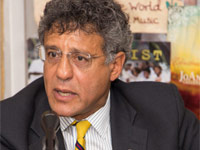Desmond Bannister, former minister for sports, Bahamas has underscored the importance of Anti-Doping in sports Act 2009. The minister was the main force behind driving anti-doping act through law and the system.
Successive governments in Bahamas have been emphasizing upon the need to subscribe to the UNESCO convention. If we look over the world anti-doping code manual and particularly ponder upon its section 6 of article 22, we would come to know that the authorities have been using good sense.
The article 22.6 states that failure of a government to ratify, accept, approve or accede to the UNESCO convention right from the very first day of 2010, or to comply with the UNESCO convention thereafter might prove to be a valid reason for the ineligibility to bid for the events. Furthermore, it can cause to other consequences like forfeiture of offices and positions with world anti-doping agency, ineligibility of any of the candidate to organize any international event in the country, symbolic consequences and other pursuant to the Olympic charter.
Hence, the great significance of the Bahamas Anti Doping Commission which took its responsibilities back in April this year is automatically highlighted. The great volume of responsibilities which had been bestowed upon the board by not only the Bahamas government, but by the mandate of WADA as well, the commission has responded rather quickly and has emerged as an important independent appointed body in the country.
The government of Bahamas is of the view that once completed, the national stadium would not only promote sports at local level, it would also play as a great marketing tool to bring and develop sports tourism in the country.



